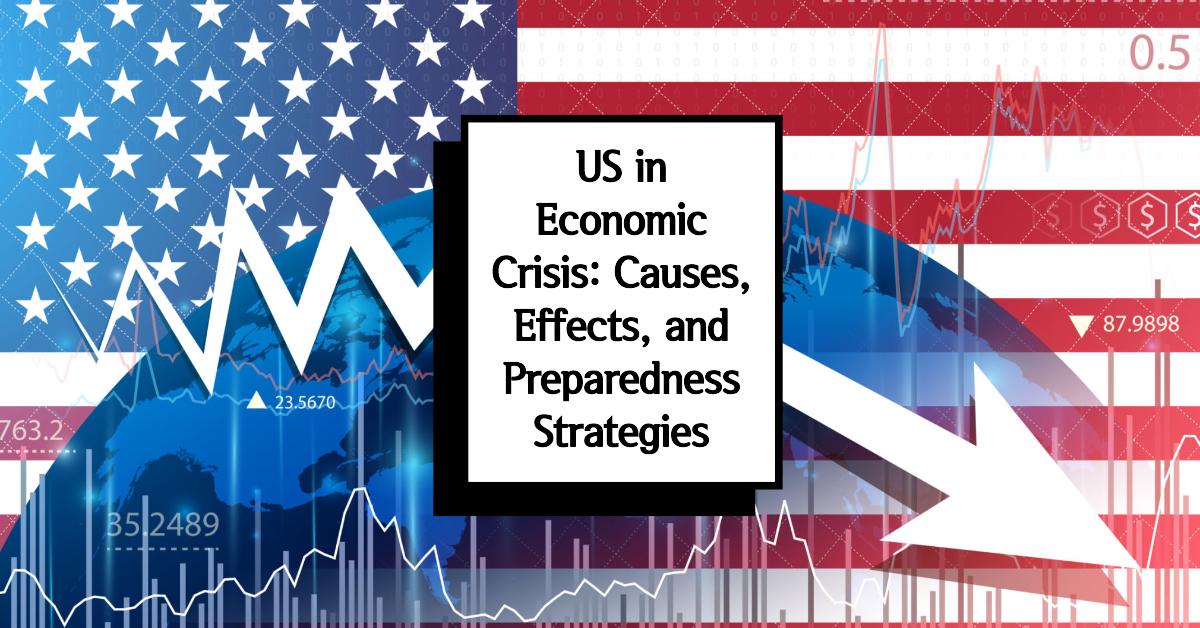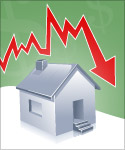When we talk about the US in economic crisis, it conjures images of high unemployment rates, shrinking GDP, and families struggling to make ends meet. It's a daunting term that holds a lot of weight. Yet, while everything may seem dire, it’s essential to break down what these economic challenges truly mean.
This article will explore the current economic situation in the United States, its causes, and what it means for everyday Americans. We’ll also discuss how governments and individuals can prepare for tough times ahead.
US in Economic Crisis: Causes, Effects, and Preparedness Strategies
The Current State of the US Economy
The economy of the United States is indeed on shaky ground as of 2024. Many experts warn of potential financial crises that could affect citizens from all walks of life. The New York Fed’s recession probability model suggests there is a 55.8% chance of a U.S. recession occurring within the next year, causing deep concern among economists and policymakers alike. But what does this mean for us as individuals living in this complex economic landscape?
Indicators of Economic Trouble
Several key indicators serve as warning signs of a brewing economic storm:
- High Inflation: Inflation has emerged as a central issue. Over the past year, the costs of essential goods and services have surged. In the food sector alone, prices have risen by nearly 7%, making it difficult for families to keep up with their grocery bills.
- Rising Interest Rates: To combat inflation, the Federal Reserve has been increasing interest rates. As borrowing costs go up, so do mortgage and loan payments. Families looking to buy homes or finance education are feeling the financial squeeze.
- Declining GDP Growth: Experts predict economic growth will slow significantly, with estimates showing a decline in GDP growth to approximately 2.2% in 2024. Not only does this signal stagnant economic activity, but it also weakens job creation prospects.
Understanding the Causes of the Economic Crisis
There are several interrelated reasons that contribute to the looming economic crisis in the US. Understanding them can help us make sense of the current situation and prepare for what lies ahead.
1. The Aftermath of the COVID-19 Pandemic
The COVID-19 pandemic has left an indelible mark on the US economy. Though we are no longer in the immediate crisis of the pandemic, the repercussions continue to be felt. Businesses are adjusting to rapid changes in consumer behavior, and many have not returned to pre-pandemic levels of productivity. Labor shortages, which have persisted since the reopening, are driving up costs.
2. Global Events and Their Consequences
Global economic trends significantly impact the US economy. Conflicts around the world, such as the ongoing issues in Eastern Europe and the Middle East, can disrupt trade routes that are vital for supplies and commodities. This disruption often leads to increased prices domestically, further inflating costs for everyday Americans.
3. Effect of Government Policies
Economic policies play a crucial role in shaping the market landscape. When the government imposes regulations or shifts fiscal strategies, it can lead to uncertainty in investment climate, causing businesses to hesitate in hiring or expanding. This can ultimately stifle growth and innovation.
Impact of Economic Crisis on Ordinary Americans
The economic crisis does not only affect big businesses or government institutions; it hits ordinary families hard. Here are some potential effects:
Increased Cost of Living
Many Americans are feeling the impact of rising prices. Essentials like food, housing, and fuel weigh heavily on household budgets. For example, the typical American family now spends upwards of $500 more each month just to maintain their standard of living due to inflationary pressures.
Job Insecurity and Employment Challenges
In uncertain economic times, companies often resort to layoffs or hiring freezes. High inflation and economic uncertainty can lead to job insecurity for many workers, creating anxiety and stress about the future. Many individuals may find it hard to secure stable employment, leading to a reliance on gig work or part-time positions that often lack benefits.
Decreased Consumer Spending and Demand
When inflation is high, and financial futures feel uncertain, consumer spending tends to decline. Households, cautious about their financial stability, may cut back on discretionary spending, such as dining out or entertainment. This decreased spending can create a ripple effect, slowing down economic growth even further.
Preparing for Economic Challenges
While the looming economic crisis can seem overwhelming, individuals and families can take several proactive steps to weather the storm. Here are a few actionable strategies:
1. Build an Emergency Fund
Establishing a savings cushion can provide reassurance during tough times. Aim to set aside at least three to six months’ worth of living expenses in a separate savings account. This fund can be a lifesaver in case of unexpected job loss or medical emergencies.
2. Create a Budget and Stick to It
Tracking your income and expenses through a well-planned budget is one of the most effective ways to regain control over your finances. Identify where you can cut back on unnecessary spending and allocate more towards savings and essential needs.
3. Diversify Income Sources
In today’s economy, relying solely on one source of income may not be wise. Consider developing additional income streams, whether through freelance work, starting a side business, or renting out property. Multiple income sources can alleviate financial pressure if one flow is disrupted.
4. Educate Yourself Financially
Knowledge is power. Take time to learn about personal finance, investments, and the economy. Numerous resources, including books, online courses, and financial seminars, can help you gain insight into making informed financial decisions that will benefit your future.
What the Government Can Do
While individual actions are important, government interventions are crucial in mitigating the effects of the crisis. Here are a few approaches that could be considered:
Economic Stimulus Packages
During tough economic times, stimulus packages can provide support to struggling families and businesses. The government can inject money into the economy, boosting spending and promoting growth in key sectors, thus supporting recovery efforts.
Interest Rate Management by the Federal Reserve
The Federal Reserve plays a vital role in managing economic stability. Through careful adjustments to interest rates, they can either cool down inflation or stimulate growth. Striking this balance is crucial for sustaining an optimistic economic environment.
Support for Vulnerable Communities
Targeted support to low-income families and communities disproportionately affected by economic downturns can ensure that everyone has the necessary resources to weather financial hardships. Programs that help with housing, food security, and job training can make significant differences.
Looking Ahead: Staying Informed and Resilient
As we navigate the complexities surrounding the US in economic crisis, staying informed is vital. The economy can often feel like a roller coaster, with ups and downs impacting our lives in real time. However, by understanding the challenges we face and taking proactive measures, individuals can better prepare for what lies ahead.
Moreover, collective efforts—both personal and governmental—can create a path towards recovery. We may not be able to avoid an economic crisis, but we can certainly reduce its impact through awareness, preparedness, and community support.
As we move forward, remember: being proactive in times of uncertainty can empower us to handle whatever challenges come our way. Together, by supporting one another and staying informed, we can work towards a more stable and prosperous future.
Conclusion: Adapting to Uncertainty
In conclusion, the US in economic crisis is a reality that many families and individuals are beginning to face. While the signs of an impending recession may be alarming, by staying informed, planning financially, and calling for responsible government actions, there is hope.
We have the ability to foster resilience in our communities and ourselves. By learning to adapt to changes, investing in education, and sharing resources, we can create a more sustainable economic environment for all.
ALSO READ:





